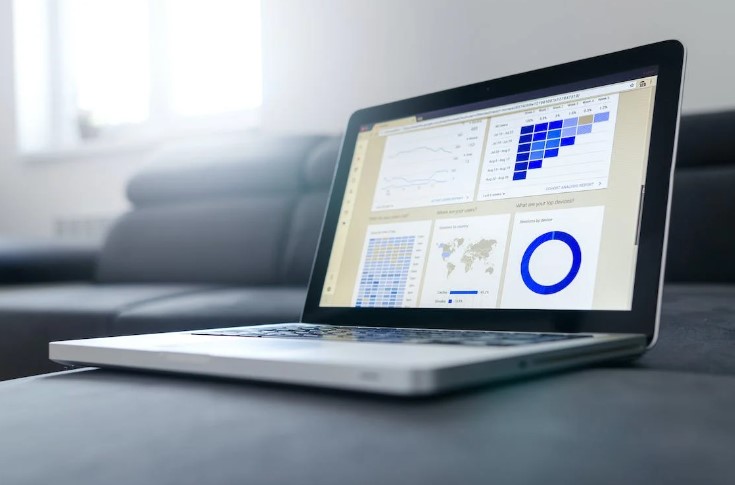Accounting Autonomy: How AI creates autonomous accounting teams
Accounting autonomy is achieved when your company’s accounting processes need minimal or no human intervention – it is the ability of your employed software and system to manage your finances according to your company’s needs without error. This kind of autonomy allows your finance and accounting professionals to take a more active role in creating financial projections and other core tasks that benefit future decisions instead of just focusing on tasks to maintain current operations.
However, attaining accounting autonomy requires a certain level of trust between accountants and the software they choose to employ. The software should be able to mimic the quality of work they do without deviation – this is where AI comes in.

By using AI to drive the company into the age of accounting autonomy, the company will be better positioned to increase efficiency and profitability with the help of their accounting professionals because AI-driven systems do the rest.
Uses of AI in achieving accounting autonomy
Automation of Routine Tasks
Most accounting processes are time consuming and routine. Tasks such as data entry, invoice processing, and transaction categorization can easily be done by AI. By using AI-systems that strictly adheres to standards set by the company’s finance and accounting teams, AI will be able to achieve the same high-quality outputs that your accountants produce.
AI-systems will be able to handle these tasks efficiently and at a quicker pace, reducing the turnaround time of routine tasks, minimizing human error and overall optimizing basic accounting processes.
Accurate Data Analysis
AI can analyze large volumes of financial data to identify trends, anomalies, and insights that accountants need when creating financial forecasts and reports. This allows the company to have an accurate picture of their current financial standing and to use this information when making decisions.
With accountants and AI working together in creating projections wherein the accountants use AI’s accurate data analysis to create accurate forecasts, companies will never be blindsided by sudden changes or ill-informed decisions again.
Read: Developing Resilience: Skills Needed for Accounting Teams
Predictive Analytics
Aside from simple analysis, AI also has the capability to create data-driven future possibilities that might affect the company. This helps companies achieve accounting autonomy as they can use AI-systems in predicting future financial trends and outcomes based on historical data.
Predictive analytics can range from predicting the change in marketing trends to consumer behavior that ensures a company adapts to remain profitable however the market changes.
Fraud Detection and Risk Management
AI has the capability to help secure your company’s financial processes in a way that humans cannot predict — this is one of the highlights that has made AI an appealing development that all industries are eager to integrate into their processes..
AI-powered systems can identify unusual patterns or anomalies in financial transactions, alerting organizations to potentially fraudulent activities. This proactive approach enhances risk management and safeguards financial integrity.
Natural Language Processing (NLP)
NLP technology in AI-systems allows for human-like interactions with financial data. By doing this, finance and accounting professionals and even executives in the company can ask questions, extract insights, and receive information regarding any financial matter from their AI accounting systems using natural language, making financial information more accessible to non-experts.
This removes the barrier that intimidates stakeholders and other company employees when it comes to numbers and finances. This creates a culture of transparency regarding your finances, creating a healthier working environment and a better-equipped workforce.
Adaptive Learning
As AI systems process more data over time, they can learn from new information and adapt their algorithms to improve accuracy and efficiency continually.
This will allow your company to be one step ahead of any economic, socio-political or environmental development that may affect company operations – having an adaptive system helps you prepare for anything that may happen and ensure your company’s continuity.
While accounting autonomy offers countless benefits for the company, it is important to highlight that AI is merely a tool used to achieve autonomy. It is vital to strike a balance between automation and human oversight. Human accountants still play a critical role in ensuring ethical considerations, regulatory compliance, and the overall integrity of financial processes. As technology evolves, the concept of accounting autonomy will likely continue to expand, enabling organizations to leverage data-driven insights for better financial management and decision-making.
Read Next: Accounting Process Improvement: How to Reduce Inefficiencies
Achieve accounting autonomy today
D&V Philippines has made it our priority to stay on top of all the developments in the finance and accounting industry.th our readiness to adapt to any changes in the field, we are equipped with the necessary tools to help companies achieve success. Contact us today and we’ll help you find the right solution for your needs.
Download our Outsourcing: How to Make it Work guide today and find out how we provide quality and secure services.




